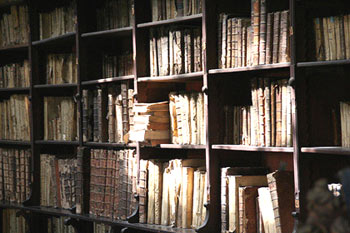

It is exciting to get a bargain, especially if it is something you want," he says. "A $40 book selling for $5 is hard to resist. "Books are not dying out, from our experience."Īnd, when it comes to used ones, Emeritus Professor Tom Nicholson of literacy education at Massey Institute of Education, believes the demand is partly because of the classic motivators: low price and the lure of a bargain. They sell paperbacks at 50 cents, most other titles are priced between $1 and $5, and collectibles are no more than $35. They also regularly receive inquiries for books in te reo Māori.

Started in 1991, Moore says non-fiction books are their most popular sellers, alongside fiction, children's books, and titles that have gone out of print.

Patricia Moore, secretary of charity group Friends of the Library, which financially supports community projects run by Rotorua Library, runs book sales at Kuirau Park on the first and third Saturday of every month, attracting up to 200 readers. Patricia Moore is the secretary of the charity group Friends of the Library, which runs book sales at Kuirau Park on the first and third Saturday of every month, attracting up to 200 readers. Like many used bookstores, nonprofit groups are reaping the financial rewards of selling a good read. "You step away from the screen and you haven't got that light in your face." Books for charity and why we love reading "It's relaxing," Newman, a former insurance worker, and English teacher in China, says of having one's nose in a book. There isn't much secondhand bookstores don't offer, other than new releases, and visitors are charmed by the variety and the "magical, mythical" environment of stacks piled everywhere, music, and discovering and browsing the unexpected. His books, of which he has 30,000, range in price from $1 to $5 for "average fiction", and the most expensive $300 or more for "really, old antique and collectibles". "We have to be a bit more sustainable than that." While community groups are able to sell books at a "dollar or two" at book fairs and markets, you pay more of a "premium" at stores that are open all year round and the books are available "right here, right now". Why? Because books can't be accumulated in storage indefinitely and avenues have to be found for moving them on, which is hard now China has stopped taking New Zealand's recyclables. Visitors are charmed by the variety and the "magical, mythical" environment. As well as owning Xanadu Book Exchange (Xanadu meaning a "place of wonderment"), she has alternative revenue sources through a jigsaw, DVD, and vinyl store next door, Xanadu Cafe further down the road, and come August, a second-hand bric-a-brac, furniture, and art store. Nowadays she's so busy though, she doesn't have much time to read. A frequent visitor to the markets, as well as book crazy, she decided a secondhand bookstore would go well. Simons entered the book trade after she left her last job at Farmers Trading after 24 years. Some customers buy books purely for home decor, including the older books in her Classics and Poetry Room for wedding table centrepieces. "I say 'maybe not today, but who knows what's going to come in tomorrow'."īooks that have spawned Netflix series, such as Dune and Bridgerton, also fly off the shelves.
#SELLING OLD LIBRARY BOOKS SERIES#
Lucinda Riley's The Seven Sisters series is highly popular - "with at least four requests a week" - but hard to come by. Sci-fi fantasy is their most sought-after genre.Ĭertain authors reign supreme: Lee Child, Lesley Pearse, Nora Roberts. Simons acquires 8000 books every three weeks and has memorised all of the titles she has for sale. She knows all of her books, even the elusive ones. The view from the second storey of her 200sqm-plus shop is like looking down on a maze - and a sensory one at that - with a patchwork of coloured book spines and the earthy smell of pages. If 150 customers a week didn't weed her library so feverishly, she'd be buried alive. In the Bay of Plenty, Briar Simons' Xanadu Book Exchange is understood to be the largest secondhand bookstore in the Southern Hemisphere - home to an estimated 15 million books, dating from the early-1800s up. While there are fewer secondhand bookstores around these days, the ones that do exist are thriving. In a world of Netflix, Neon, and nine million mobile apps, you could be surprised to learn there's a used book renaissance going on. Briar Simons' Xanadu Book Exchange houses an estimated 15 million books, dating from the early-1800s up.


 0 kommentar(er)
0 kommentar(er)
